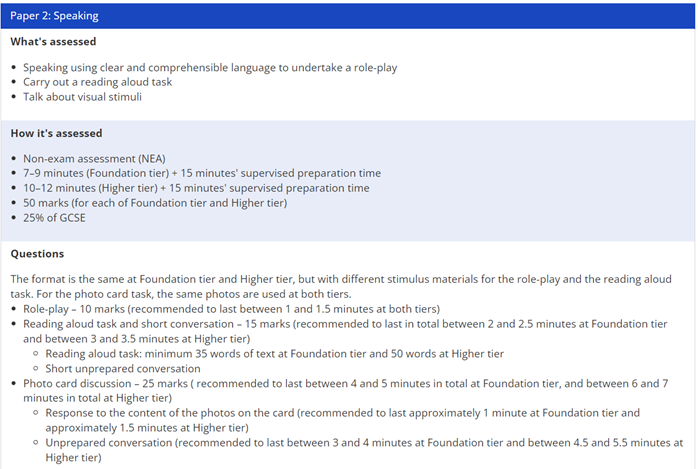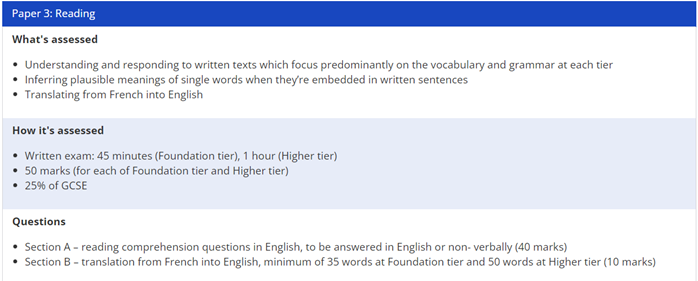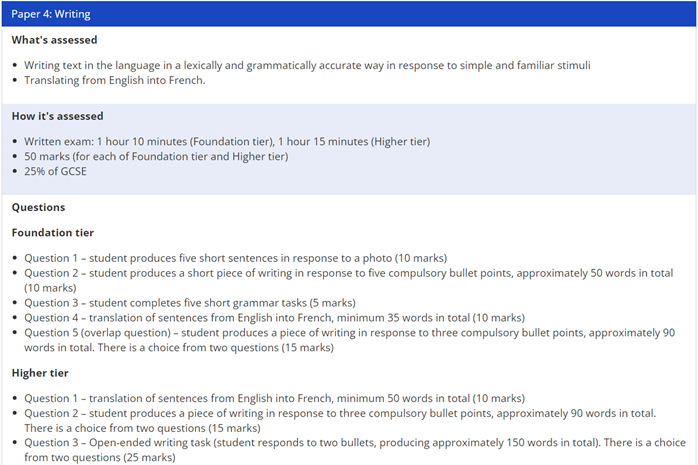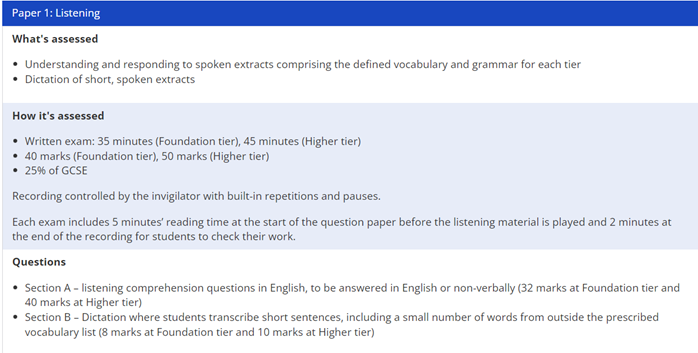Modern Foreign Languages
Moving from Primary to Secondary
Students join us with a huge variety of experiences of learning a second language. Some may have studied French/German or Spanish for up to an hour per week in their primary schools, while others may have not encountered the language at all. As students prepare to become part of an Acorn secondary school, we aim to spark their interest by allowing them to create a project. Whether on paper or via digital presentations, pupils can research areas in which they are particularly interested alongside the more general themes of geography, history, customs, festivals and typical foods and drinks.
Creating Subject Experts
Our curriculum has two clear aims – to create enthusiastic, confident and successful learners and inspire our students to become more aware of the world around them. We aspire that all of Acorn’s students end their journey with us as confident and capable linguists.
In every lesson, we strive to improve our student’s abilities in at least three of the four key disciplinary skills – listening, speaking, reading and writing. Our lessons begin with reference to our big picture, our learning benchmark and then how it relates to the topic being studied. Lessons are designed to engage, inspire, entertain and most importantly ensure success for our students. Our starter activities show our commitment to revisiting previous learning, ensuring that no key concept has been forgotten or missed, while new vocabulary is taught through choral repetition, drama, games, music and song.
Progress is assessed at the end of each topic, when our students complete an end of topic test in at least one of the four disciplinary skills. Following an extensive RPE (Recover, Practise, Extend) lesson, students work through a variety of tasks relating not just to their most recent topic, but also previous learning and are awarded a highly prized ‘benchmark’ sticker having successfully proven their skills and knowledge.
Subject Disciplines (Skills)
As our students progress on their journey, they strive to obtain the relevant benchmark sticker which relates to the skill upon which they are focussed. Our benchmarks are:
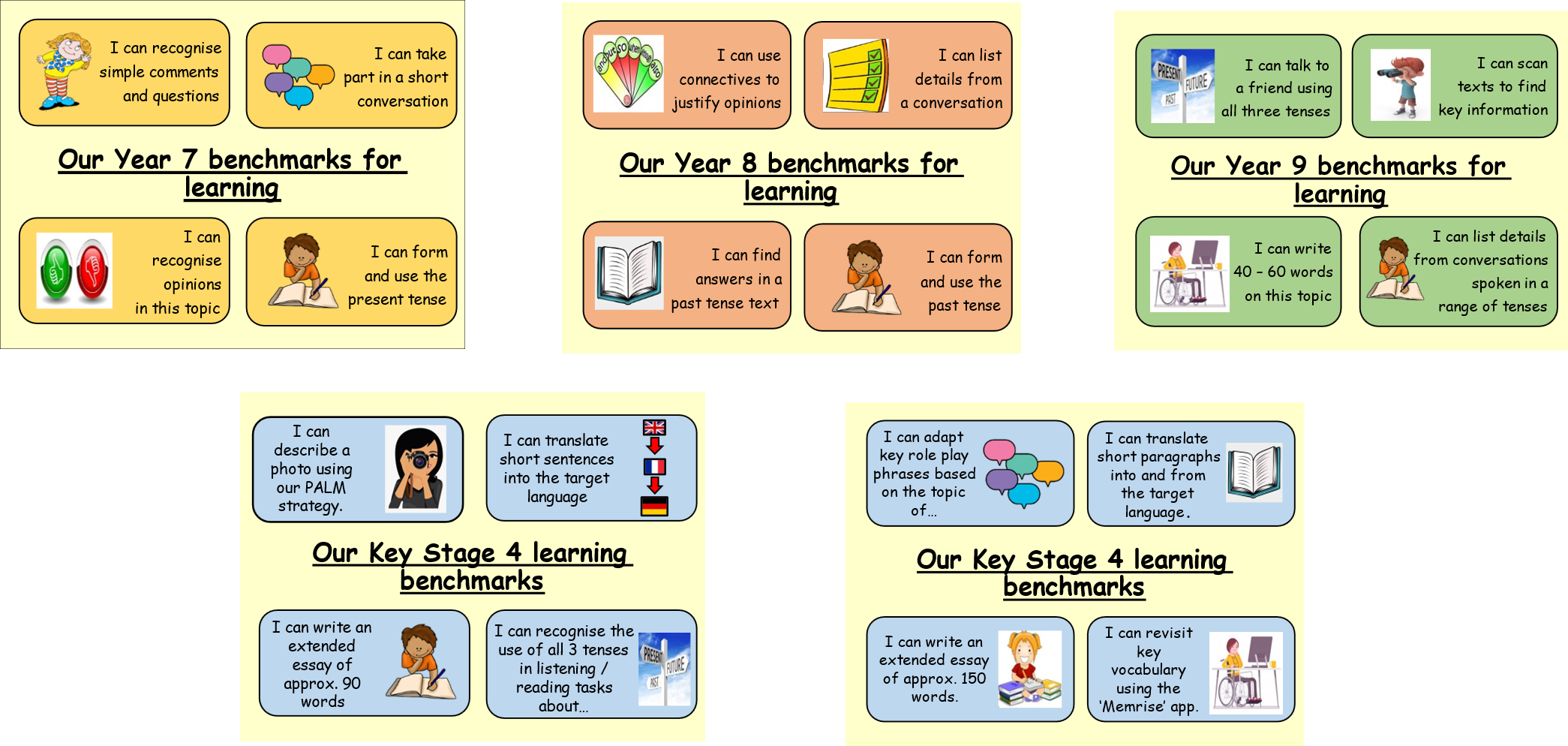
Subject Substantives (Knowledge)
As we interleave our learning benchmarks throughout their learning journey, these ideas are practised through our four key skills of listening, speaking, reading and writing. Through ever more challenging course content, students become more proficient in understanding and communicating their ideas on a vast variety of topics. Throughout the five years these include:
- Introducing yourself and your family
- Explaining what you enjoy doing in your free-time
- Describing your favourite and least favourite school subjects with a reason why
- Ordering a meal in a restaurant
- Talking about a previous holiday and where you would like to visit in the future
- Expressing an opinion and possible solutions about environmental and social issues
- Offering advice on how to have a healthy lifestyle
Roadmap
Image to follow
How we assess your child
Assessment Grades KS3
Students complete assessments in each of their subjects at key points during the year which test their understanding of all the knowledge they have learnt to date (we call these cumulative assessments). We grade these assessments on a scale from 1-9 (9 being the highest). The assessments are designed so that each year they become more challenging and test students on their growing bank of knowledge.
Therefore, as an example, if your child achieves a grade 5 in an assessment in Year 7, we can predict confidently that they should go on and achieve at least a grade 5 at GCSE. This is providing they keep working hard and progressing. Please note: this prediction states “at least”. Students often achieve higher than this.
In years 7 – 9, in practical subjects (PE, Drama, Music etc.), we assess students on their practical ability and skills. This gives us a strong indication of how successful they would be if they chose one of these subjects as a GCSE option. However, in order to get a fuller view of their potential success, it is also important to consider their grades in the core subjects. This is because there is often a literacy, numeracy, or scientific element to the courses.
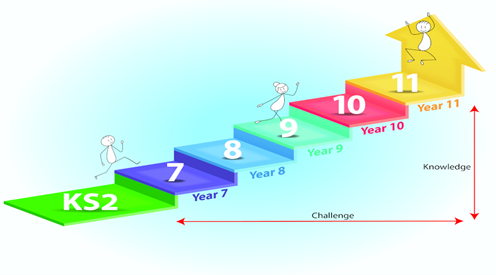
Assessment Grades in KS4
Students complete mock exams in each of their subjects at key points during the year which test their understanding of all the knowledge they have learnt to date. We grade these mock exams on a scale from 1-9 (9 being the highest). In the report you will see:-
- Target Grade: This is based on a student’s past performance. It is an aspirational but achievable target
- Mock Grade: The grade they achieved in the mock exam
- Predicted Grade: The grade a teacher believes a student will achieve in the final exam, if they maintain their current ATL and performance
Assessment Grades in KS5
Students complete mock exams in each of their subjects at key points during the year which test their understanding of all the knowledge they have learnt to date. We grade these mock exams on a scale from A*-E/Distinction* - Pass. In the report you will see:-
- Target Grade: This is based on a student’s past performance. It is an aspirational but achievable target
- Mock Grade: The grade they achieved in the mock exam
- Predicted Grade: The grade a teacher believes a student will achieve in the final exam, if they maintain their current ATL and performance
Exam Board Information
